THE HISTORY OF EMOTIONS

 HISTORICAL APPROACHES
HISTORICAL APPROACHES 
Series editor
Geoffrey Cubitt
The Historical Approaches series aims to make a distinctive contribution to current debate about the nature of the historical discipline, its theory and practice, and its evolving relationships to other cultural and intellectual fields. The intention of the series is to bridge the gap that sometimes exists between learned monographs on the one hand and beginners manuals on the other, by offering works that have the clarity of argument and liveliness of style to appeal to a general and student readership, while also prompting thought and debate among practising historians and thinkers about the discipline. Titles in the series will cover a wide variety of fields, and explore them from a range of different angles, but will have in common the aspiration of raising awareness of the issues that are posed by historical studies in todays world, and of the significance of debates about history for a broader understanding of contemporary culture.
Also available:
Geoffrey Cubitt History and memory
Joanna de Groot Empire and history writing in Britain c.17502012
Matthew Kempshall Rhetoric and the writing of history, 4001500
THE HISTORY OF EMOTIONS

Rob Boddice
Manchester University Press
Copyright Rob Boddice 2018
The right of Rob Boddice to be identified as the author of this work has been asserted by him in accordance with the Copyright, Designs and Patents Act 1988.
Published by Manchester University Press
Altrincham Street, Manchester M1 7JA
www.manchesteruniversitypress.co.uk
British Library Cataloguing-in-Publication Data
A catalogue record for this book is available from the British Library
ISBN 978 1 7849 9428 0 hardback
ISBN 978 1 7849 9429 7 paperback
First published 2018
The publisher has no responsibility for the persistence or accuracy of URLs for any external or third-party internet websites referred to in this book, and does not guarantee that any content on such websites is, or will remain, accurate or appropriate.
Typeset by
Servis Filmsetting Ltd, Stockport, Cheshire
For Blueberry, whatever you may become
CONTENTS
This book is the product of years of exposure to different ways of doing the history of emotions. I was fortunate enough to be in one of the major centres of research as the field exploded, and was present as many of its core ideas either took shape or had their shape changed. In Berlin I was part of both the Languages of Emotion Excellence Cluster at Freie Universitt and the Center for the History of Emotions at the Max Planck Institute for Human Development. Without those five years of conversation, of listening, of reading and of writing, I could not have written this book.
There are far too many individuals to thank from these institutions, but I reserve mention for Jan Plamper (now of Goldsmiths) and Ute Frevert, who more than any others facilitated debate in the crucible of disciplinary formation. Because of my Berlin ties I was able to make connections to historians of emotion around the world. This book has its origins in the mind of Rhodri Hayward at the Centre for the History of Emotions at Queen Mary University of London, and fell to me to write it presumably because he thought I would not mess it up. I hope it passes muster! Thomas Dixon at the same institution has been a regular correspondent and sounding board. After meeting Javier Moscoso in Berlin he was most gracious in inviting me to Madrid and in being fantastically enthusiastic in his engagement with my work. I am certain there has never been a more hospitable host, and I am also certain that, in his army of graduate students, some of whom have become friends, the future is bright for the history of emotions and the history of experience. The Melbourne node of the Australian Research Council Centre of Excellence for the History of Emotions was kind enough to host me, listen to my thoughts on where we were all going and discuss with me their teaching strategies and future plans. Special thanks to Charles Zika another wonderful host and Stephanie Trigg, for making it a memorable month. And just as I continually reached out to historians of emotions around the world, so they reached out to me. For kind invitations and collegial engagement I must thank Joanna Bourke at Birkbeck, Karen Vallgrda at Copenhagen, Ville Kivimki at Tampere and George Weisz at McGill. Matthew Milner heightened my senses. Special thanks, for help along the way, go to Susan Matt, Peter Stearns and William Reddy. One could not wish for better pillars of inspiration in this field.
Some sections of inevitably overlap with work produced at the same time as this volume, for the chapter Neurohistory, in P. Burke and M. Tamm [eds], Debating New Approaches in History (London: Bloomsbury, forthcoming).
Naturally, I owe great debts to the individuals and institutions who support me in my research and writing. Much of the work for this book was done under the auspices of a research grant from the Deutsche Forschungsgemeinschaft. Family and friends are unswerving in backing me to do what I feel I must. Tony Morris is a positive force. And my wife, Stephanie Olsen, as always, has influenced every sentence. As a historian of emotions herself, with more than a small claim to being a leading scholar of the field in its intersection with the history of childhood, I could not have wished for a better sounding board, disputant and emotion modifier.
History departments around the world appear to have taken the emotional turn. There are already a number of theoretical and methodological tools, generated by historians, that address what emotions are and what historians should do with them. Historians of emotions have engaged with sometimes borrowing, sometimes abusing other disciplines, most notably anthropology and the neurosciences, in the process of carving out a space in which the history of emotions can exist.
At the heart of this process are a series of radical claims that this book aims both to describe and, in many ways, defend: 1) Emotions change over time: that is to say, emotions are as much the subject of historical enquiry as anything else; 2) Emotions are not merely the effect of historical circumstances, expressed in the aftermath of events, but are active causes of events and richly enhance historiographical theories of causation; 3) Emotions are at the centre of the history of the human being, considered as a biocultural entity that is characterised as a worlded body, in the worlds of other worlded bodies; 4) Emotions are at the centre of the history of morality, for it is becoming increasingly unlikely that any account of human virtue, morals or ethics can be devoid of an analysis of its historical emotional context. Taken together, the history of emotions is, therefore, putting emotions at the centre of historiographical practice. Emotions cannot be sidelined as another (soft) category of historical analysis, peripheral to the weighty subjects of identity, race, class, gender, globalism and politics. The history of emotions enhances our understanding of all these things.


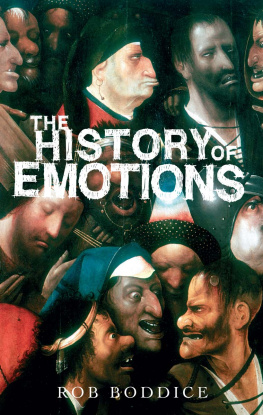
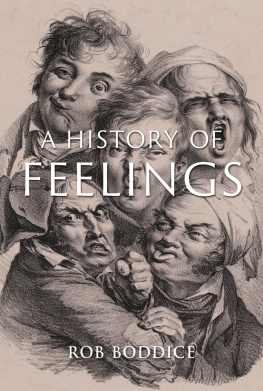

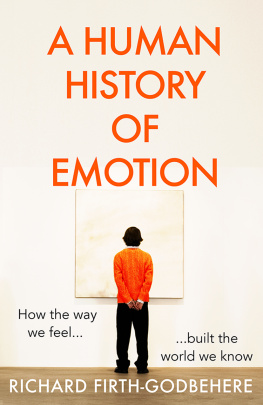
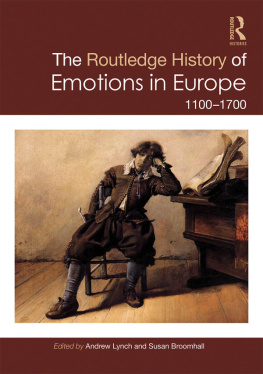
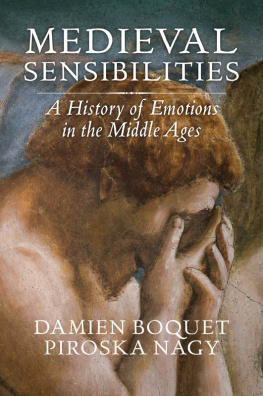
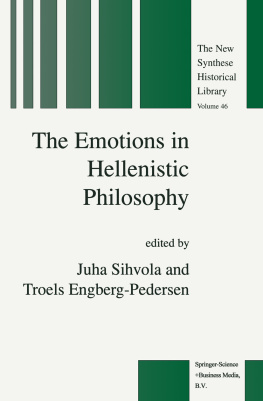
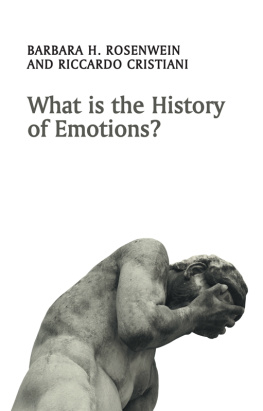
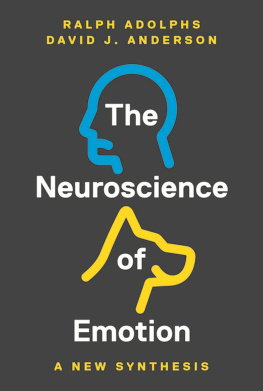
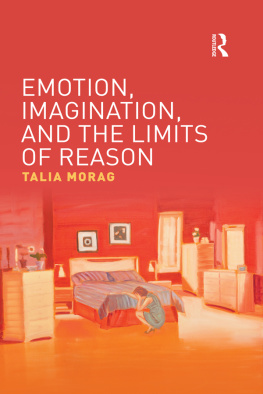


 HISTORICAL APPROACHES
HISTORICAL APPROACHES 